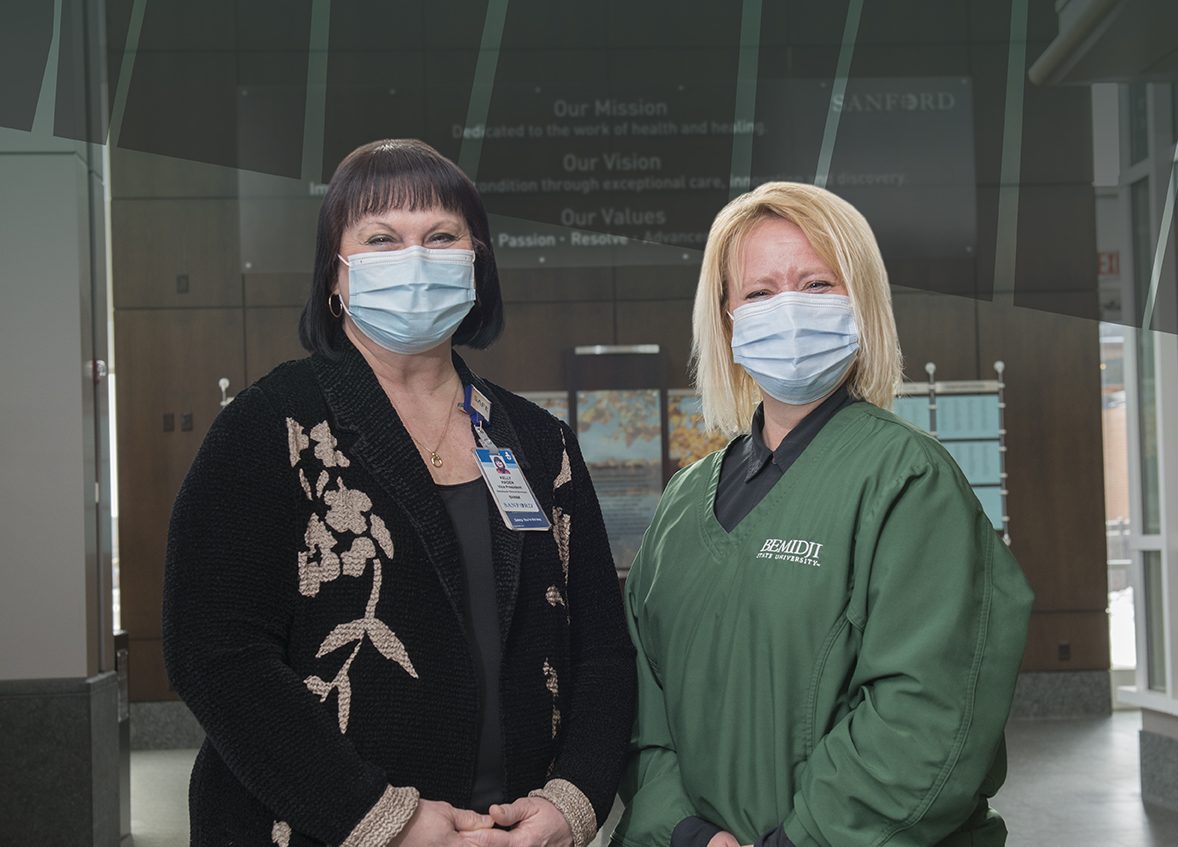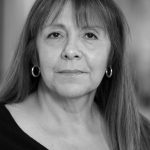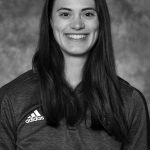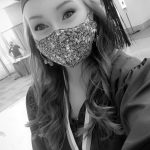
When the onset of COVID-19 shocked communities around the globe, leaders turned to those trained to support the health and well-being of our communities — scientists, doctors, nurses and other health care professionals.
While the pandemic response created challenges across all parts of campus, for the Department of Nursing it also created opportunities to expand on its already strong partnerships with both Sanford Bemidji Medical Center and the Minnesota Department of Health. With guidance from local, state and federal agencies continually evolving, nursing faculty and students took advantage of the opportunity to learn by engaging directly with the pandemic response.
[aesop_quote type=”block” background=”#ffffff” text=”#000000″ align=”left” size=”1″ quote=”“MDH appreciates all of the students, faculty and staff who worked with us to support our community response to COVID-19”” cite=”Kristen Ehresmann, director of the Infectious Disease Epidemiology, Prevention & Control Division at the Minnesota Department of Health” parallax=”off” direction=”left” revealfx=”inplace”]
Dr. Marci Maple, professor and chair of nursing at Bemidji State, collaborates closely with Kelly Hagen, vice president of nursing and clinical services at Sanford Health of Northern Minnesota, to ensure the partnership not only provides BSU students with the experiential learning they need, but also that Sanford Health of Bemidji has additional resources to call upon in times of need.
In addition, Maple supports Sanford as a member of its nursing residency board, and Hagen sits on BSU’s nursing advisory board.
“Taking the time to build the relationship is really what it’s about,” Maple said “We need to be in a partnership. Sanford Health employs our students, and we’re providing the educational basis for our student nurses to be up to par for their career and practice.”
Hagen says the partnership works because, at the end of the day, BSU nursing and Sanford Health have the same goals.
“One of the strengths that we have in common is that we’re focused on the same things — patients, staff and community,” she said. “Our health care worker pipeline is dependent on our academic partnerships. If we are here to care for our community and our patients, one of the most important things that we do is to continue to foster that pipeline.”
[aesop_parallax img=”https://www.bemidjistate.edu/magazine/wp-content/uploads/sites/137/2021/07/21NursingInduction_0102.jpg” parallaxbg=”on” captionposition=”bottom-left” lightbox=”off” floater=”off” floaterposition=”left” floaterdirection=”none” overlay_revealfx=”off”]
Building Careers With Sanford Health of Bemidji
While many hospitals closed their doors to students as part of their pandemic response, strong partnerships allowed BSU students to continue their experiential learning. The partnership not only helped ensure that BSU students stayed on track in pursuit of their nursing degrees, but also ensured that Sanford had the personnel it needed during the pandemic.
She said the partnership with BSU is what allows Sanford Health’s nursing corps to continue evolving.
“Nursing is at the foundation of patient care,” Hagen said. “It has been for hundreds of years and will be into the foreseeable future. So supporting and advancing the profession of nursing and the connections it has to care today and in the future is ever so important.”
Sanford also created additional capstone experiences for BSU students through an extended internship program. Previously only offered during the spring semester, Sanford worked with Dr. Jessica LeTexier, an associate professor of nursing who teaches courses related to the internships, to extend the internship program to a full year.
The extended internships allow senior nursing students who are enrolled in an accredited nursing program and have already completed a summer internship at Sanford Health to apply for an extended position.
“Students have this amazing summer internship opportunity where they are completing over 200 hours on various floors and then they come back to school and want to continue in this enriched clinical environment,” LeTexier said.
As a result of Sanford’s pandemic response, Bemidji State’s nursing students were able to work in a variety of settings including COVID-19 vaccination sites and long-term care facilities.
“Our students were able to boost their skills while also seeing the bigger, broader picture of where we’re at with our science and health care, and trying to protect those frontline workers,” LeTexier said.
During the extended internship, students work alongside current nurses at Sanford which allows them to continue to grow both in their clinical skills and professional attributes.
“It’s a learning environment on both ends,” Hagen said.“We continue to learn as our students continue to gain experience.”
In addition, students and faculty both were able to participate in COVID-19 vaccinations, which also provided opportunities for students and faculty to receive their own vaccinations early in the spring.
Some BSU nursing faculty also picked up shifts on Sanford Bemidji’s medical-surgical floor to relieve the stress on nurses who were reassigned to COVID units.
Nursing Students Become COVID-19 Case Investigators

As the Minnesota Department of Health sought to expand its contact tracing efforts during the fall of 2020, they turned to BSU nursing students for support. With many clinics limiting student access at the height of the pandemic, serving on a contact tracing team afforded BSU students another avenue to fulfill their clinical experience requirements.
Dr. Mary Fairbanks, professor of nursing, worked with the Minnesota Department of Health to provide opportunities for nursing students to earn clinical hours as case investigators.
[aesop_quote type=”block” background=”#ffffff” text=”#000000″ align=”left” size=”1″ quote=”“We thought it was a great opportunity for our students to help with the prevention of COVID.”” cite=”Dr. Mary Fairbanks, professor of nursing” parallax=”off” direction=”left” revealfx=”off”]
“We thought it was a great opportunity for our students to help with the prevention of COVID,” she said. “Our students could use the experience as their clinical hours, because it’s what nurses do in the workplace. It fit the course objectives and it was safe.”

Nursing grad Clair DeGeorge ’21 of Anchorage, Alaska, was among the more than 130 BSU students who participated in the contact tracing operation. She and other contact tracers recorded information in a database which Department of Health staff could analyze to determine whether additional contacts were needed or to identify potential viral outbreak locations.
“We were responsible for documenting possible exposure and who the people we were contacting may have exposed to the virus,” DeGeorge said. “We also discussed the importance of isolation for the client and what it entailed. We determined if the case would need any further assistance and what to do in the case of an emergency.”
[aesop_quote type=”block” background=”#ffffff” text=”#000000″ align=”left” size=”1″ quote=”“We were responsible for documenting possible exposure and who the people we were contacting may have exposed to the virus”” cite=”Clair DeGeorge ’21, BSU Nursing Grad” parallax=”off” direction=”left” revealfx=”off”]
Kristen Ehresmann, director of the Infectious Disease Epidemiology, Prevention & Control Division at the Minnesota Department of Health, said the partnership with student volunteers was mutually beneficial and hopes participating in pandemic response activities will encourage students to consider a future in public health.
“MDH appreciates all of the students, faculty and staff who worked with us to support our community response to COVID-19,” she said. “The strong support from higher education has been invaluable.”

Cherish Jarvi ‘21, a nursing graduate from Babbit, was grateful for the experience and the opportunity to see and experience a side of health care — something she normally wouldn’t have done with an in-person clinical.
“I learned the importance of different agencies and health care workers coming together during a global health crisis, and the importance of early intervention and contact tracing to further prevent the spread of an infectious disease,” Jarvi said. “It showed the importance of proper hygiene and infection prevention like wearing a mask, social distancing and quarantining when not feeling well.”
[aesop_quote type=”block” background=”#ffffff” text=”#000000″ align=”left” size=”1″ quote=”“I learned the importance of different agencies and health care workers coming together during a global health crisis”” cite=”Cherish Jarvi ’21, BSU Nursing Grad” parallax=”off” direction=”left” revealfx=”off”]
Both DeGeorge and Jarvi said the experience helped them foster a crucial skill necessary for success in the nursing world — the ability to stay calm during the storm.
“This experience involved having conversations with many people who may still be processing the fact that they tested positive for COVID-19,” DeGeorge said. “This was a great platform to practice therapeutic communication. It is very difficult to show empathy when talking to someone over the phone. Yet, every time you made a new call it got easier to communicate and help clients express or identify their emotions. I will forever be grateful to have been given the opportunity to focus on such a crucial aspect of nursing while being able to make a difference in unprecedented times.”
Future Partnership Opportunities
Finding opportunity in crisis, the relationship between Bemidji State’s nursing program and Sanford Health not only provided impossible-to-replicate experiences for BSU nursing students, but also demonstrated the strength of the partnership and sets the stage for other long-term goals — such as advancement of Sanford’s nursing residency program.
“Once a registered nurse has completed their academic education, education doesn’t stop,” Hagen said. “You don’t stop being a student one day and become a professional nurse the next day without bridging some of the needs that you have in that process.”
She said Maple and BSU have been instrumental in Sanford’s development of the residency program.
“They and other academic partners in our region were present at the table as we put that structure together,” she said. “They were able to inform us, from an academic perspective, as to some of the things we needed to consider in that residency program and how their students might transition into a residency program as they become a novice nurse.”
Looking forward, Maple says the collaboration between Bemidji State and Sanford is just getting started.
“I can’t say how powerful it’s been, and we’re only touching the iceberg,” she said.
